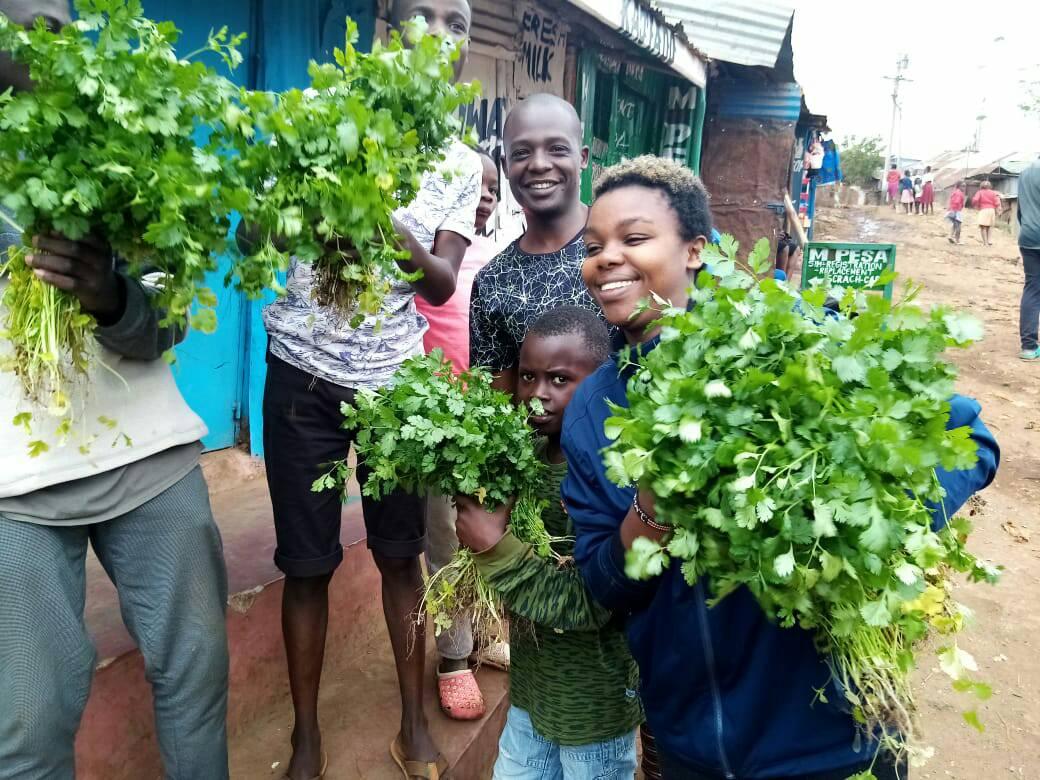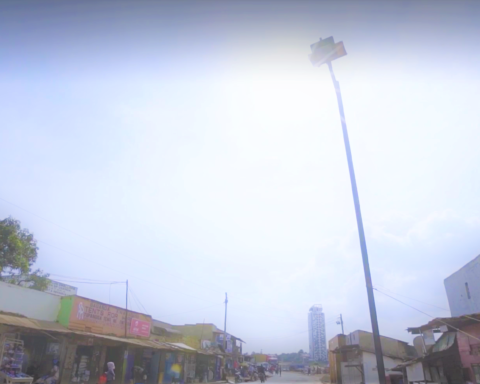Learnings
- Urban farms create green jobs in informal settlements
- Communal benefits from urban farming can improve the reputation of young people
- Transforming wasteland into farmland provides a 2-in-1 benefit for communities
“There are food security issues – food is expensive”
Food security is an ever-present worry for those living hand-to-mouth in Kenya’s informal settlements. In Kibera, a group of young women and men brought together through the Safe and Inclusive Cities (SAIC) programme have been addressing this problem by executing an innovative means of increasing food production. They transformed land formerly used as a waste dump in their neighbourhood into an area for circular farming.
“I have learnt that indeed we have untapped resources…Farming can also provide a source of income.”
This unconventional use of the urban space has increased access to nutritious food for locals and provided decent work for young people. The young women and men working on the farm now enjoy stable employment and an increased standing within their community.
“This used to be a dumping site and as youth we saw the need to clean up and rehabilitate.”
By clearing waste from the land, the neighbourhood is also safer, as outbreaks of disease are now less likely to occur.
“The community now recognises our efforts.”
By coming together to address common issues that affect everyone in the community, the youth have positioned themselves as a force for good in the eyes of their neighbours. They have improved the local environment and the everyday lives of those in their community:
“Ever since the youth started vegetable farming, we have benefited from the fresh produce. I’d urge them to continue”
Urban farming is a long-term, sustainable solution to the twin problems of food security and youth unemployment in informal settlements. In Kibera, profits are reinvested back into the farm to ensure that the project can continue to expand and positively impact even more residents.
“We want families to easily access vegetables at an affordable price…
Our aim is to have parents only budget for cooking oil and flour for ugali as vegetables are already available.”

Learn more about











